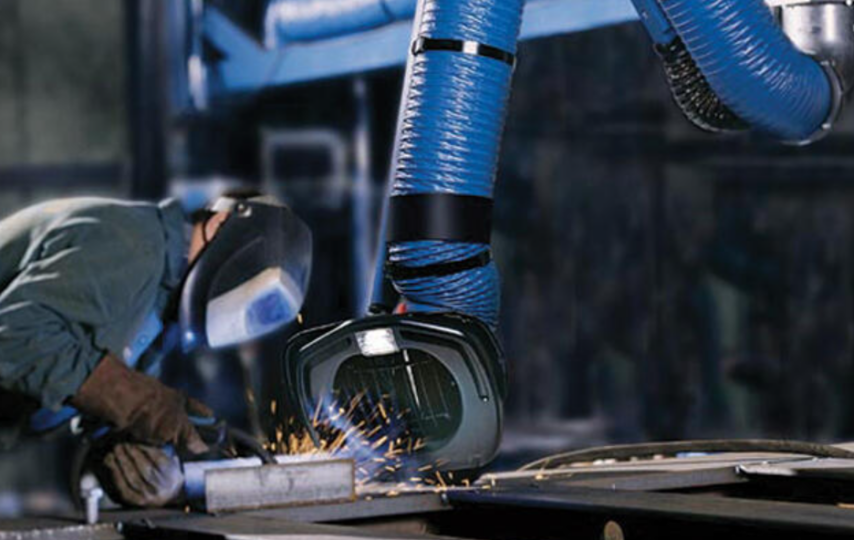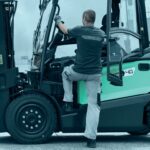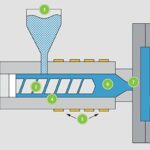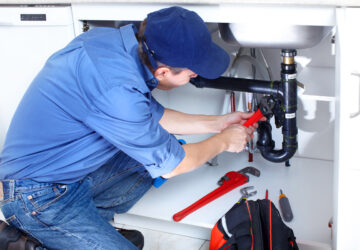Introduction – Understanding the Importance of Choosing the Right Fume Extractor
Choosing the right fume extractor is vital for maintaining a safe and healthy workplace. These devices effectively capture and remove harmful fumes, protecting workers from health risks and ensuring compliance with safety regulations. Choosing the right fume extractor not only protects employee well-being but also boosts productivity and minimizes liability risks. In the following sections, we will explore the key factors to consider when choosing a fume extractor, industry-specific requirements, and essential features to look for. Make an informed decision to create a safer working environment for your industry.
What is Fume Extractor
A fume extractor is a specialized device used in industrial and commercial settings to remove harmful fumes and airborne contaminants from the air. It works by capturing and filtering the fumes through various filters, ensuring clean air is returned to the workspace. Fume extractors are crucial for protecting workers from health risks associated with inhaling hazardous fumes and help maintain compliance with safety regulations. They come in different types and sizes to accommodate various industries and their specific fume generation needs. Overall, fume extractors play a vital role in creating a safe and healthy work environment by removing harmful substances from the air.
Assessing Industry-Specific Requirements
Identifying the Different Industries That Require Fume Extractors
Fume extractors are essential in a wide range of industries where hazardous fumes are generated. By identifying the industries that require fume extractors, you can better understand the specific needs and challenges associated with each sector. Some industries where fume extractors are commonly used include welding, manufacturing, laboratories, construction, automotive, and chemical processing. Each industry presents unique fume generation sources and potential hazards that need to be addressed effectively.
Recognizing the Unique Challenges and Hazards Faced in Each Industry
Different industries face distinct challenges and hazards when it comes to fume extraction. For example, in the welding industry, fumes produced during the welding process contain toxic substances such as metal oxides and gases, necessitating efficient fume capture near the welding point. In manufacturing, various processes like cutting, grinding, and surface coating generate fumes that require extraction to maintain air quality. Laboratories deal with chemicals and solvents, necessitating the use of fume extractors to protect workers from potentially harmful vapors. Understanding these unique challenges allows you to select a fume extractor that is specifically designed to address the hazards prevalent in your industry.
By recognizing the industries that require fume extractors and understanding the specific challenges and hazards within each sector, you can make informed decisions when selecting the right fume extractor for your industry’s requirements. Consider the industry-specific factors and tailor your fume extractor choice to effectively capture and remove the fumes generated in your particular work environment.
Key Factors to Consider When Selecting a Fume Extracto
Airflow Capacity:
Understanding the Importance of Adequate Airflow
When selecting a fume extractor, one of the key factors to consider is the airflow capacity. Adequate airflow is crucial for effective fume extraction as it determines the speed at which the fumes are captured and removed from the workspace. Insufficient airflow can compromise fume capture and air quality, while excessive airflow can result in energy wastage. Understanding the importance of having the right airflow capacity ensures optimal performance and safety in your work environment.
Calculating Airflow Requirements for Your Workspace
To determine the appropriate airflow capacity for your workspace, several factors need to be considered. These include the size of the area, the number of fume sources, the intensity of fume generation, and the required air changes per hour (ACH) to maintain a clean and safe environment. Consulting with experts or utilizing online calculators specific to fume extraction can assist in accurately calculating the airflow requirements for your workspace.
Filtration Systems:
Types of Filters Used in Fume Extractors
Fume extractors employ different types of filters to capture and remove airborne contaminants. Commonly used filters include activated carbon filters, HEPA (High-Efficiency Particulate Air) filters, and electrostatic precipitators. Activated carbon filters are effective in adsorbing gases and odors, while HEPA filters are efficient in capturing small particulate matter. Electrostatic precipitators use an electrostatic charge to attract and collect particles. Understanding the types of filters available and their capabilities allows you to choose the appropriate filtration system that matches the specific contaminants generated in your industry.
Selecting the Appropriate Filtration Technology for Your Industry
Selecting the right filtration technology depends on the type of industry and the specific contaminants you need to address. For example, if your industry involves welding, where metal fumes and gases are common, a fume extractor with both activated carbon and HEPA filters might be ideal. Understanding the specific filtration needs of your industry helps ensure that the fume extractor you choose can effectively remove the hazardous substances present in your work environment.
Portability and Mobility:
Determining the Need for Portable or Fixed Fume Extractors
Consider whether you require a portable or fixed fume extractor based on your operational needs. Portable fume extractors provide flexibility by allowing easy relocation to various work areas, whereas fixed extractors are permanently installed in a specific location. Factors such as the size of your workspace, the mobility required for different tasks, and the number of workstations needing fume extraction will influence this decision.
Considering the Importance of Easy Maneuverability
If portability is a priority, ensure that the fume extractor you choose is lightweight and equipped with features such as casters or handles for easy maneuverability. This allows you to efficiently position the fume extractor near the source of fumes, ensuring effective capture and removal.
Specialized Features for Specific Industries
Welding Industry:
Factors to Consider for Welding Fume Extractors
When selecting a fume extractor for the welding industry, there are specific considerations to keep in mind. These include the capacity to capture and remove welding fumes effectively, the ability to handle high temperatures, and the inclusion of spark arrestors to prevent fire hazards. Additionally, look for features such as flexible extraction arms and easily replaceable filters to ensure efficient and convenient operation.
Manufacturing Industry:
Specific Requirements for Fume Extractors in Manufacturing Processes
In the manufacturing industry, fume extractors must address the diverse range of processes that generate fumes. Look for extractors that can handle various types of fumes, such as those generated from cutting, grinding, or surface coating. Adjustable airflow control, large filter capacity, and compatibility with ducting systems are important features to consider. Additionally, robust construction and easy maintenance contribute to effective fume extraction in manufacturing environments.
Laboratory Settings
Ensuring Safety in Laboratory Workspaces
Laboratories require fume extractors to safeguard workers from potentially hazardous chemicals and solvents. Select extractors that are specifically designed for laboratory use, equipped with chemical-resistant materials and filters capable of capturing volatile vapors. Noise reduction features, compact size, and easy installation are also beneficial in laboratory settings.
Choosing the Right Fume Extractor Provider
Researching and Selecting Reputable Manufacturers and Suppliers
When selecting a fume extractor, it is crucial to choose a reputable manufacturer or supplier. Conduct thorough research to identify reliable companies known for their quality products and expertise in the field of fume extraction. Look for manufacturers with a proven track record, positive customer reviews, and certifications that demonstrate their commitment to meeting industry standards. A reputable provider will offer a wide range of fume extractors to suit different industry needs and provide valuable guidance in selecting the right solution for your specific requirements.
Evaluating Warranty, Customer Support, and After-Sales Service
Apart from the product itself, it is essential to assess the warranty, customer support, and after-sales service offered by the fume extractor provider. A comprehensive warranty ensures peace of mind, as it covers any potential defects or malfunctions during the specified period. Customer support should be readily available to address any inquiries or concerns you may have regarding the product. Additionally, inquire about the availability of spare parts and servicing options to ensure ongoing maintenance and efficient operation of the fume extractor. Choosing a provider that offers excellent after-sales service ensures a smooth experience throughout the lifespan of the product
Best Fume Extractor Provider – Translas
When it comes to finding the best fume extractor provide, Translas is a name that stands out. With their commitment to innovation, quality, and customer satisfaction, Translas offers a wide range of fume extraction, welding equipment and accessories that cater to various industries and welding processes.Translas’s fume extractors, which are specifically designed to effectively capture and eliminate welding fumes, ensuring a safe and healthy work environment. Their advanced filtration technologies, high-performance airflow capacity, and versatile designs meet industry standards. Whether you need portable extractors for mobile welding applications or centralized systems for large-scale operations, Translas has the expertise and products to meet your fume extraction needs. With their reputation for reliability and excellent customer support, Translas is undoubtedly a top choice for businesses seeking the best fume extractor provider for their welding equipment and accessories.
Conclusion: Making an Informed Decision for a Safe and Efficient Workspace
Choosing the right fume extractor is crucial for creating a safe and efficient workspace. By considering factors such as airflow capacity, filtration systems, portability, and specialized features for specific industries, you can select a fume extractor that effectively captures and removes harmful fumes while meeting industry requirements. Researching reputable manufacturers and suppliers and evaluating warranty, customer support, and after-sales service ensures a positive experience. Investing in the right fume extractor promotes worker safety, regulatory compliance, and a productive work environment. Prioritize the health and well-being of your workforce by making an informed decision when selecting a fume extractor.
.








